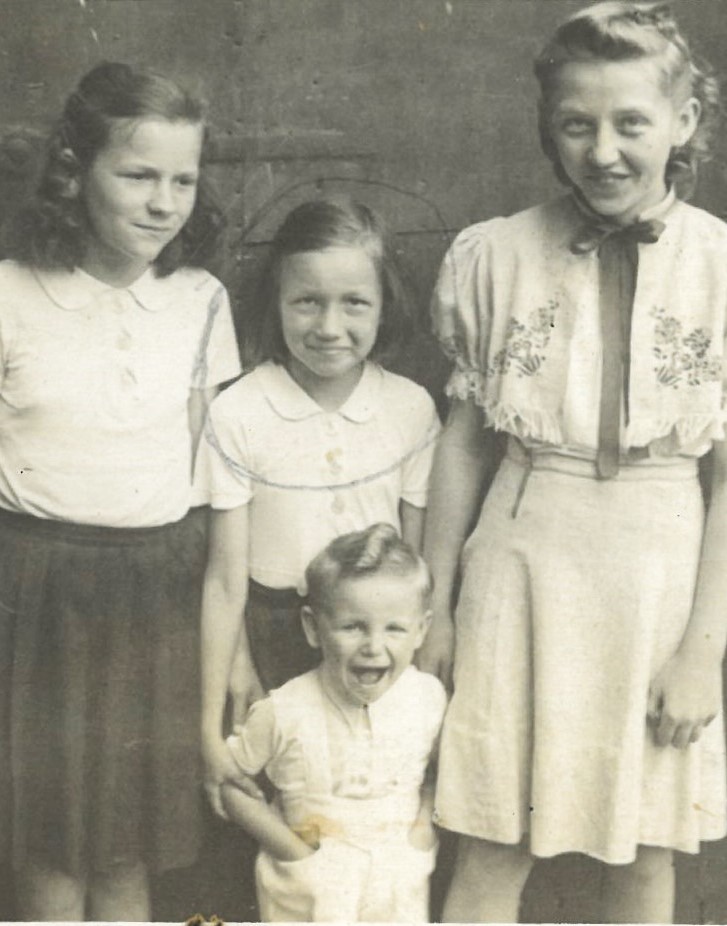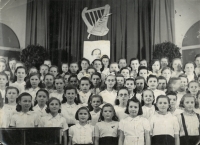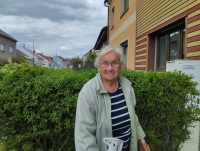The war took her childhood away. She was no longer allowed to play with Jewish children

Download image
Milada Kocourková, née Fukarová, was born in Litomyšl on 18 February 1930. Her mother was a seamstress, her father a tailor, and she had five siblings. From an early age, she encountered Sudeten Germans from the surrounding villages and she could speak German as a child. Jewish family, the Eisners, lived in the neighbouring villa and she played with their children as a child, but during the war they were no longer allowed to meet. At Christmas, her mother secretly sent her to them with apples. Her eldest brother was deployed on forced labour in Germany. After the factory in Halle an der Saale had been bombed, the family thought he was dead. German gendarmes came to them looking for her brother. Having finished her schooling in 1944, she joined the German Papouschek family in Litomyšl. At the end of the war she had to go with them to Salzburg. At the end of 1945 she moved to Svitavy with her parents. She worked in a textile factory with Sudeten German women who were waiting to be deported. Like her father, she joined the Communist Party. After the occupation of Czechoslovakia by Warsaw Pact troops in August 1968, she interpreted for the wives of Soviet officers who lived in the barracks in Květná near Polička. She had two children with her first husband. After his death, she married the former Czechoslovak ambassador Vladimír Ludvík. She was living in her family house in Svitavy in 2023.
























